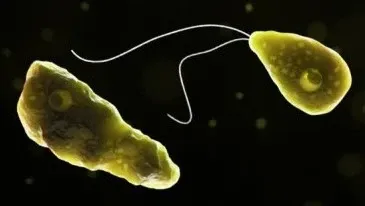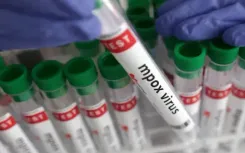Is Kerala Facing Another Tragedy from Amoebic Meningoencephalitis?

Synopsis
Key Takeaways
- Kerala has recorded 42 cases of amoebic meningoencephalitis in 2023.
- Health officials are intensifying water safety testing in affected districts.
- Efforts to promote safe-water practices are ongoing.
- Naegleria fowleri thrives in warm freshwater environments.
- Public awareness is crucial in preventing further infections.
Kozhikode (Kerala), Sep 6 (NationPress) Kerala has seen yet another fatality linked to amoebic meningoencephalitis, commonly referred to as the “brain-eating amoeba infection,” this Saturday morning, raising the state's death toll from the disease this year to seven, as reported by health officials.
The deceased, Ratheesh, aged 45, was from Bathery in the Wayanad district and had been receiving treatment at Kozhikode Medical College Hospital (KMCH) for over a week. Health authorities noted that his condition had remained critical prior to his passing early Saturday.
Initially, Ratheesh was admitted to a local hospital with high fever and cough. As his health deteriorated, he was transferred to KMCH, where he ultimately succumbed.
Currently, one more patient from Kasaragod district is in critical condition at KMCH, while eleven others are receiving treatment. A patient who had been hospitalized at KMCH was discharged on Friday.
This year, Kerala has recorded 42 confirmed cases of amoebic meningoencephalitis, with the majority of infections occurring in Kozhikode and Malappuram districts in northern Kerala.
Kozhikode alone has faced four fatalities this year, including a three-month-old infant and a nine-year-old girl last month.
In response to the recent spike in this rare yet deadly brain infection, health authorities have intensified testing of water sources such as ponds, wells, and other bodies in both Kozhikode and neighboring Malappuram districts.
KMCH has also augmented its diagnostic capabilities for identifying the infection following the increase in cases, with funds allocated by State Minister A.K. Saseendran for acquiring more testing equipment.
The Kerala government is actively conducting a “Water is Life” purification initiative, focusing on wells, water tanks, and public water bodies throughout the state.
Officials are continuously advocating for safe-water practices, especially during the monsoon season in regions susceptible to the disease.
The pathogen Naegleria fowleri, responsible for the infection, is a heat-resistant protozoan that thrives in warm freshwater environments like ponds, lakes, wells, rivers, and poorly chlorinated pools, particularly during summer and monsoon.
This organism can enter the body through the nose while swimming, bathing, or nasal rinsing, rapidly traveling to the brain and resulting in primary amoebic meningoencephalitis.







